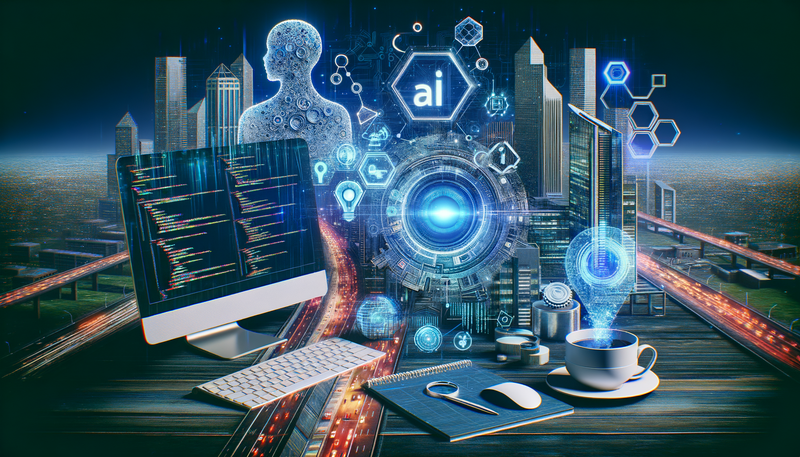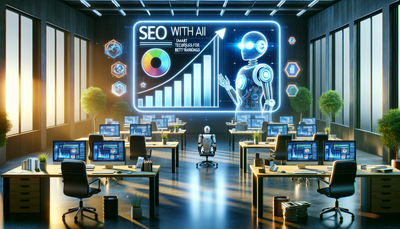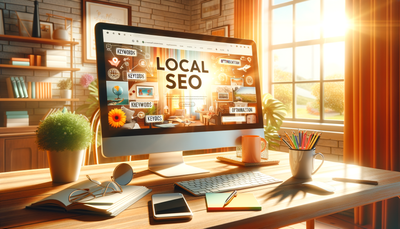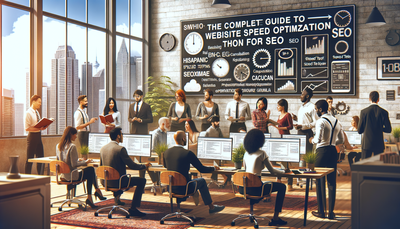The Impact of AI and Machine Learning on SEO: What You Need to Know
Artificial Intelligence (AI) and Machine Learning (ML) are revolutionizing the field of Search Engine Optimization (SEO). These technologies are transforming how websites are optimized, content is created, and search results are ranked. As search engines become more sophisticated, SEO professionals must adapt their strategies to stay ahead. This article explores the impact of AI and ML on SEO, discussing how these technologies are shaping the future of digital marketing. We'll delve into AI-driven SEO tools, content optimization techniques, and the role of predictive analytics in crafting effective SEO strategies. By understanding these advancements, marketers can harness the power of AI and ML to improve their website's visibility and performance in search engine results pages (SERPs).Table of Contents:

The Rise of AI and ML in SEO
Artificial Intelligence and Machine Learning have become integral parts of search engine algorithms, fundamentally changing how websites are ranked and displayed in search results. AI-powered algorithms, such as Google's RankBrain, use machine learning to understand user intent and deliver more relevant search results.This shift has made traditional SEO tactics less effective, as search engines now prioritize user experience and content quality over keyword density and backlink quantity. SEO professionals must now focus on creating high-quality, user-centric content that addresses searchers' needs and provides value. By leveraging AI and ML, search engines can better understand context, semantics, and user behavior, making it crucial for SEO strategies to evolve accordingly.
Do you need a website? Want to build a website but don't know where to start? Our website builder is the perfect solution. Easy to use, and with the ability to customize to fit your business needs, you can have a professional website in no time.
AI-Driven SEO Tools and Their Impact
The emergence of AI-driven SEO tools has revolutionized how marketers approach optimization. These tools utilize machine learning algorithms to analyze vast amounts of data, providing insights that were previously impossible to obtain manually.AI-powered SEO tools can help with keyword research, content optimization, and competitor analysis. They can identify trends, predict search patterns, and suggest optimizations based on real-time data. Some advanced tools even use natural language processing to analyze content quality and relevance.
By leveraging these AI-driven tools, SEO professionals can make data-driven decisions, save time on routine tasks, and focus on developing more strategic and effective optimization strategies. As these tools continue to evolve, they will become increasingly essential for staying competitive in the ever-changing SEO landscape.
Content Optimization in the Age of AI
With AI and ML playing a more significant role in search algorithms, content optimization has become more sophisticated. Search engines now prioritize content that demonstrates expertise, authoritativeness, and trustworthiness (E-A-T). AI-powered content optimization tools can help create content that aligns with these principles.These tools can analyze top-ranking content for a given keyword, identify gaps in existing content, and suggest improvements. They can also help with semantic SEO by recommending related keywords and topics to cover, ensuring comprehensive content that satisfies user intent.
Moreover, AI can assist in personalizing content for different user segments, improving engagement and relevance. As search engines become better at understanding context and user intent, creating high-quality, relevant content that addresses specific user needs will be crucial for SEO success.
Building a website with SITE123 is easy
Predictive Analytics and SEO Strategy
Predictive analytics, powered by AI and ML, is transforming how SEO professionals develop and implement their strategies. By analyzing historical data and identifying patterns, predictive analytics can forecast future trends, allowing marketers to stay ahead of the curve.These insights can help in various aspects of SEO, such as predicting keyword trends, anticipating algorithm updates, and identifying emerging opportunities. For example, predictive analytics can forecast which topics are likely to gain traction in the coming months, allowing content creators to develop relevant material in advance.
Additionally, predictive analytics can help optimize technical SEO elements by identifying potential issues before they impact search rankings. This proactive approach enables SEO professionals to maintain and improve their website's performance in SERPs consistently.
Adapting SEO Strategies for an AI-Driven Future
As AI and ML continue to shape the SEO landscape, marketers must adapt their strategies to remain effective. This adaptation involves embracing new technologies, focusing on user experience, and prioritizing high-quality content creation.One key strategy is to leverage AI-powered tools for data analysis and optimization while maintaining a human touch in content creation and strategy development. It's crucial to strike a balance between automation and creativity, using AI to inform decisions but relying on human expertise for interpretation and implementation.
Another important aspect is to focus on creating content that genuinely addresses user needs and provides value. As search engines become better at understanding user intent, websites that consistently deliver relevant, high-quality content will be more likely to rank well in search results.
The Future of SEO: AI-Powered Personalization
The future of SEO lies in AI-powered personalization. As search engines become more sophisticated, they will increasingly tailor search results to individual users based on their search history, location, and other factors. This shift towards personalization means that SEO strategies must evolve to target specific user segments rather than aiming for broad, generic rankings.AI and ML will play a crucial role in this personalization, helping marketers understand and predict user behavior, preferences, and intent. By leveraging these insights, SEO professionals can create more targeted content and optimize for specific user journeys.
As this trend continues, the line between SEO and user experience (UX) will blur further, making it essential for marketers to focus on creating seamless, personalized experiences that cater to individual user needs and preferences.





